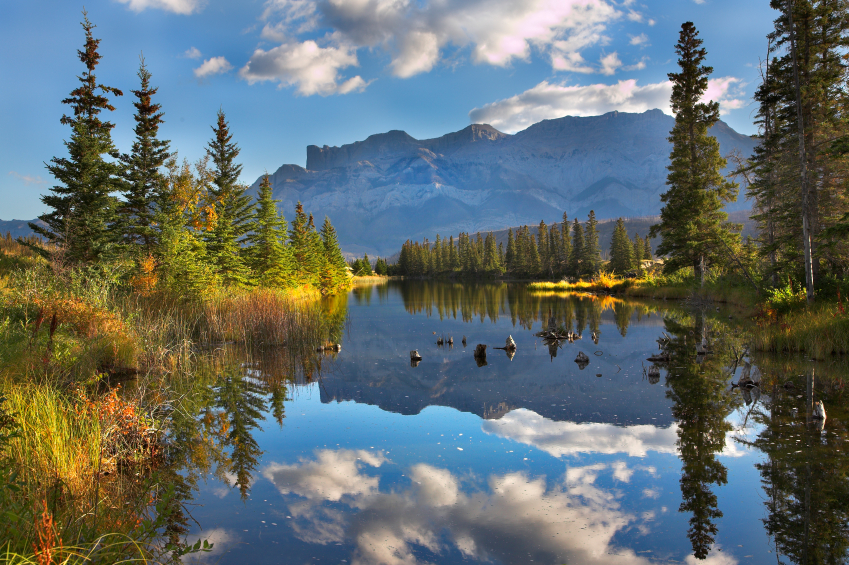Imagine a day in the life of a wildlife officer. Protecting wildlife, people, and natural resources while enforcing wildlife law and regulations. Tranquil hikes through stunning natural beauty, fresh mountain air filling the lungs. These are the images that come to mind – rangers working in the great outdoors amid lakes, streams, mountains, deserts, and forests.
But there is another element that you may not have thought of. Danger, as you’ll find out in a moment, is an ever-present fact of life for workers dealing with large, often skittish animals, as well as armed poachers. These officers are ready for just about anything, though. Through education, testing, and training, they are prepared to enforce laws and apprehend anyone who is abusing our natural resources and wildlife.
The job of wildlife officers calls on them to carry firearms, make arrests, serve warrants, testify in court, check fishing and hunting licenses, set up stakeouts for poachers and night hunters, participate in hunter education, and handle water and boating issues, along with many other tasks. Each day brings new challenges and surprises.
What It Takes
According to Patuxent Research Refuge wildlife officer Samantha Fleming, she gets to do many of the things normal people do for fun on their days off – except that it’s her job! Often you find yourself working in places that most people can only dream about vacationing in.
In order to be eligible for the job, you need to
- be at least 21 years of age
- be a U.S. citizen
- have a valid driver’s license
- have a clean record with no felonies
- meet minimum education requirements (high school graduate/GED, associate degree, or higher)
- pass drug screening, polygraph, and psychological examinations
- be able to meet physical fitness requirements involving running, swimming, and strength
- pass a visual and hearing test
Education, Academy Life, and Beyond
Helpful courses or majors include
- criminal justice
- biology
- forestry
- environmental science
- law enforcement
- wildlife, fisheries, and natural resources management
Extended drug use, a poor driving record, and similar problems may automatically disqualify you from the selection process, depending upon the employer.
If you are selected, academy training will present mental and physical hurdles to overcome as you learn about
- evidence gathering
- law enforcement techniques
- proper driving techniques
- firearms training
- court appearances
When you become a wildlife officer, then it’s on to field training and possibly a probationary period to prepare you for the rigors of the job. You may also need to relocate.
Extreme Daily Duties
Wildlife officers may be asked to speak at public events or schools in their area. They may assist with classes or workshops, school field trips or other outdoor educational activities. Officers need to possess a very strong work ethic and a broad knowledge base about wildlife law. They are held to a very high standard. Honesty, a strong character, and a desire to assist others are the most vital qualities needed on the job.
Stories about wildlife officers doing their jobs can be found across the Web: using night-vision goggles to corner salmon poachers, dealing with a bear hiding in a home crawl space, the simple kind act of saving an ensnared elk from a soccer net, life-or-death encounters with marauding cougars, shutting down smuggling operations, and the like. In Lee County, Arkansas, for instance, a warden confronted a suspected poacher and the man responded by trying to run the warden down with his truck. The warden opened fire, but the man escaped from the scene. So much for peace and tranquility!
Not Your Average Job
So it’s not all family picnics, checking licenses, or ecstatic hikes through natural wonders. A wildlife officer’s life can have some serious and perilous aspects. Whether trying to placate unpredictable 350-pound animals or having to deal with violent poachers, you often have your hands full. It’s the education, training, and on-the-job learning, along with the strengths you bring to the job, that will help you protect and conserve our most precious natural resources and wildlife.
Are You Game?
As a wildlife officer, you have the opportunity of working amid miraculous and beautiful scenery. You get to share your knowledge with others while following a demanding, yet rewarding, career path. Best of all, you know you’re making a real difference in our world.




